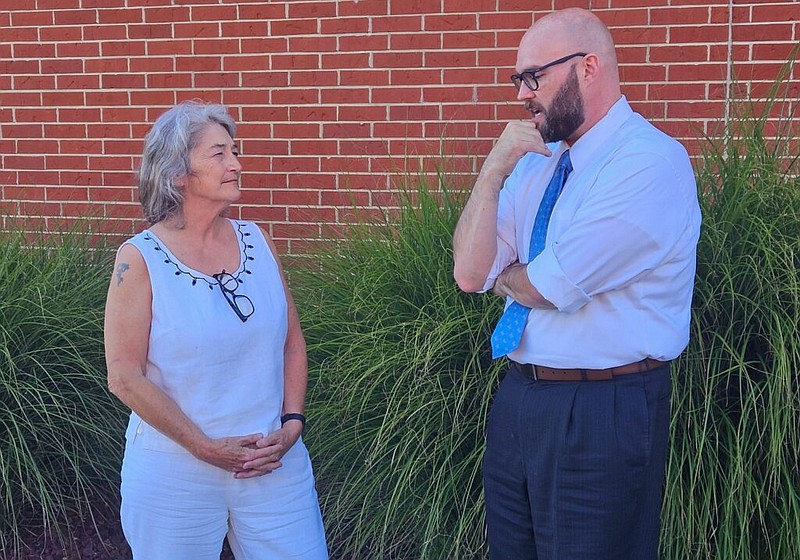The Freedom Center of Missouri has filed its respondent’s brief with the Missouri Court of Appeals, Southern District, in the case of State ex rel. Rebecca Varney v. City of Edgar Springs, arguing that municipalities cannot be allowed to ignore court judgments ordering them to pay for violating the constitutional rights of their citizens.
The case stems from the City of Edgar Springs’ years-long campaign of retaliation against resident Rebecca Varney. After Varney began criticizing city officials and requesting public records to investigate government operations, the city issued a “No Trespass Notice” banning her from City Hall. This ban, imposed without explanation, a hearing, or an expiration date, prevented Varney for more than four years from exercising her right to review public records in person, and they eventually extended the ban to prevent her from attending City Council meetings.
In December 2023, a Phelps County court found the city’ actions constituted “disturbing” violations of Varney’s First Amendment, Due Process, and Equal Protection rights, as well as “purposeful” violations of Missouri’s Sunshine Law. The court ordered the city to pay Varney $79,716.22 in damages, penalties, costs, and attorney fees.
The city, however, refused to pay. While over four years it had spent at least $35,000 (and likely closer to $50,000) paying its own attorneys to defend its unlawful conduct, it balked at satisfying the judgment owed to Varney. It signaled that it would not voluntarily comply with Varney’s efforts to enforce the judgment by refusing to provide information about the City’s financial accounts, claiming they were “exempt from execution under Missouri law.”
In response, Varney sought a writ of mandamus—a court order compelling a government official to perform a mandatory duty. The trial court granted the writ, ordering the city to use its available general operating revenue to pay the judgment debt. Instead of complying, the city appealed the order.
The city’s appeal poses a simple but dangerous question: Are Missouri municipalities immune from judicial enforcement of monetary judgments?
The answer, as we argue in our brief, is a resounding no.
For over a century, Missouri courts have held that a municipality has a “plain moral as well as legal obligation” to pay its judgment debts. The duty to pay is mandatory, not discretionary. The established remedy for a city that refuses to pay is a writ of mandamus.
If the court sides with the City, it would set a catastrophic precedent. It would mean that a city could brazenly violate a citizen’s rights, spend tens of thousands of taxpayer dollars fighting the citizen in court, and then simply ignore the judgment it lost. This would eviscerate legal accountability for local governments, especially in smaller communities where citizens have limited resources to fight City Hall.
A ruling for the city would create a perverse incentive for municipalities to engage in endless litigation, secure in the knowledge they could never ultimately be forced to pay. The rights guaranteed by the Constitution and the Sunshine Law would become meaningless for those without the means to force compliance.
We are asking the Court of Appeals to affirm the trial court’s well-reasoned judgment and ensure that Rebecca Varney, and all Missourians, can obtain meaningful relief when their government violates their rights. The court will likely hold oral arguments in this case sometime in the coming months and will probably issue an opinion early next year.
Varney-Respondents-Brief_FILESTAMPED
